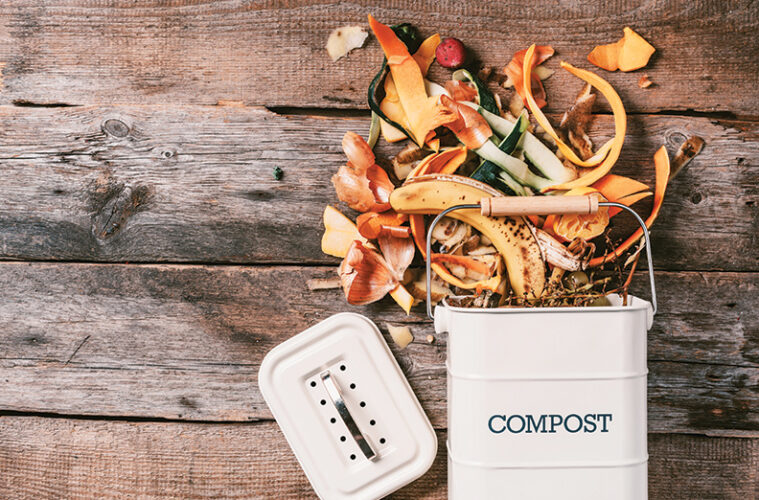BY NINA WAYSDORF
Recyclable and compostable materials really aren’t waste – they’re resources. Compost is essentially the recycling of organic materials; it is a natural, biological process that turns our food scraps and yard debris into a nutrient-rich soil amendment, the finished compost product.
Composting, whether in a backyard system, vermicomposting (worm composting) or through a compost pickup service, supports a circular system and directly reduces our community’s greenhouse gas emissions. Organics in the landfill release methane, a potent greenhouse gas, and by pulling those items out of the landfill and into composting, we can take direct action against climate change and treat compostable materials not as “waste,” but as the valuable resources they are.
It’s no wonder that compost collection programs have grown throughout the country and across the Front Range. However, as compost programs have grown and spread, so too has contamination. Contamination in the recycling and compost streams can throw off the processing systems in a variety of ways, and the composting process is especially sensitive to contamination. Think about it: you don’t want to trash your garden, right?
That takes us to now. Compost haulers and municipalities along the Front Range of Colorado are working with regional compost manufacturer A1 Organics to reduce contamination and create a high-quality, clean compost product. The goal is to keep high value organics, food scraps and yard trimmings, out of the landfill to prevent harmful methane emissions while creating a valuable soil amendment that will help Colorado farms and landscapes build healthy soils that absorb carbon dioxide from the atmosphere, reduce water and chemical use, and grow nutritious foods.
In order to reduce contamination going to A1 Organics, there have been updates to what can be put in compost collection carts across the Front Range. These changes apply to current Denver Solid Waste Management compost customers (if you have compost collection through another hauler, please check with your hauler for updates).
Beginning April 1, 2023, compost guidelines will be simplified to two categories only:
• Food Scraps: Baked Goods, Coffee Grounds, Dairy, Eggshells, Fruits and Vegetables, Meat & Bones, Prepared Food, Spoiled or Moldy Food, Rinds, Peels, and Pits. (Remove all produce decals, stickers, rubber bands, twist-ties and anything that is NOT food.)
• Yard & Plant Trimmings: Branches, Brush, Flowers, Grass Clippings, Leaves, Pinecones, Pine Needles, Weeds.
• 3-gallon or smaller (kitchen pail-sized) CMA-approved compost bags are accepted. No other compostable or paper bags are accepted. We recommend saving money by avoiding bags all together – let your items loose in your compost cart!
The following materials are no longer allowed in the compost and should be put in the trash cart:
• Paper Products: including tissues, paper towels and napkins, tissue paper, brightly colored paper, paper scraps and shredded paper, tea bags and coffee filters (please continue to put coffee grounds into compost cart and trash the filter), greasy pizza boxes (non-greasy boxes can be recycled).
• Compostable Packaging and Serviceware: even those that are certified compostable, including cups, utensils, plates, and takeout containers.
• Compostable Bags EXCEPT 3-gallon or smaller CMA-certified compost bags (kitchen pail-sized).
• Paper Yard Waste Bags EXCEPT during LeafDrop.
Visit us online at www.DenverGov.org/COMPOST to learn more about why we are seeing these changes and to find an updated FAQ guide, a list of accepted CMA-approved compostable bags, and downloadable waste diversion guides.
Nina Waysdorf is the Waste Diversion and Recycling Manager with the City and County of Denver, Solid Waste Management.

